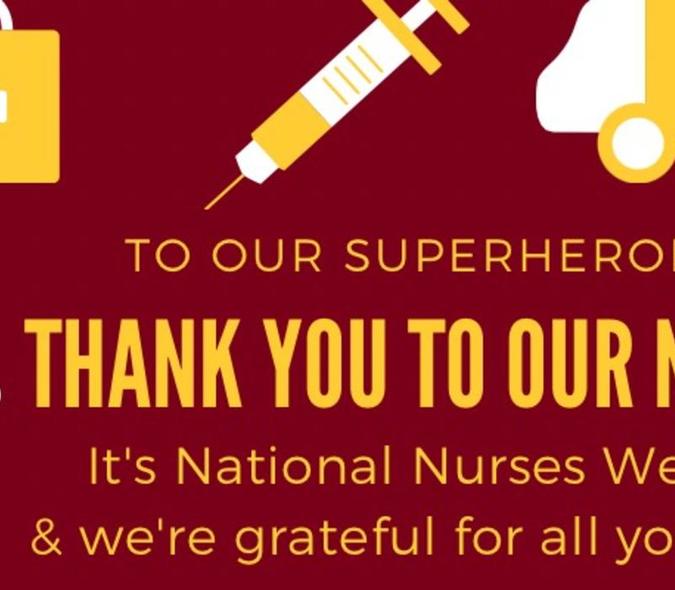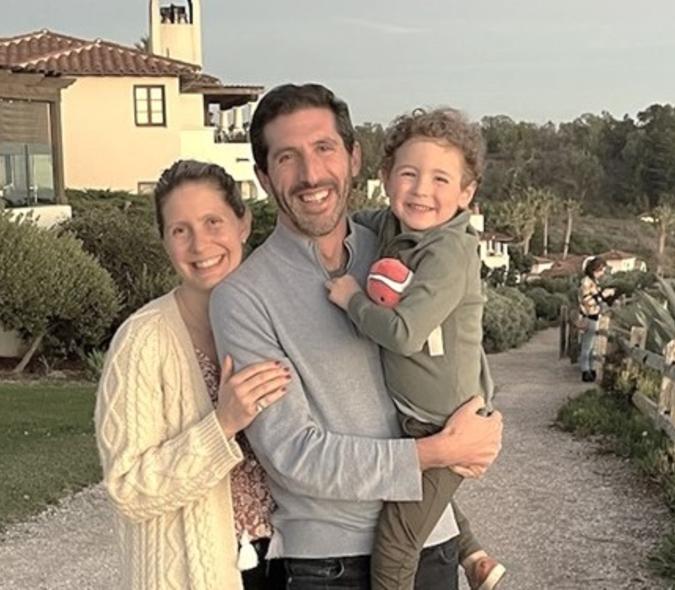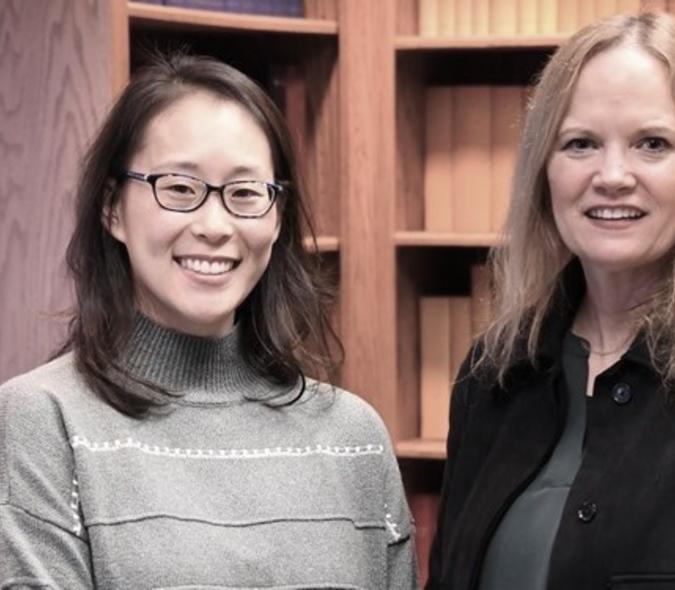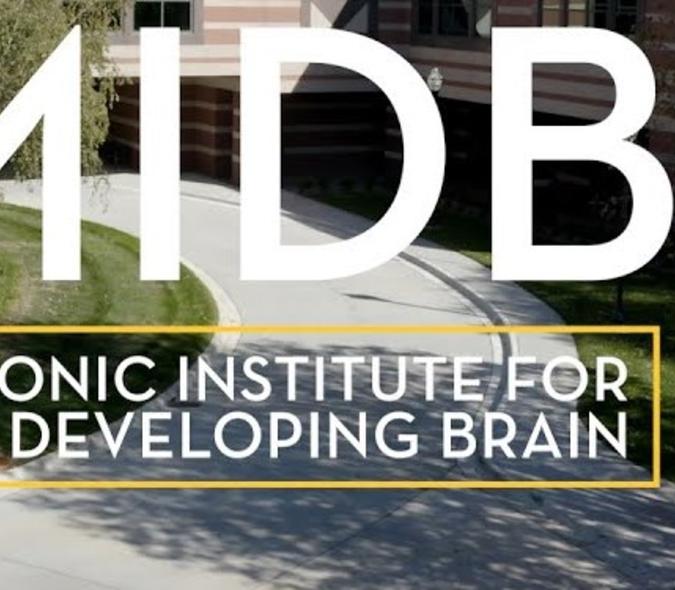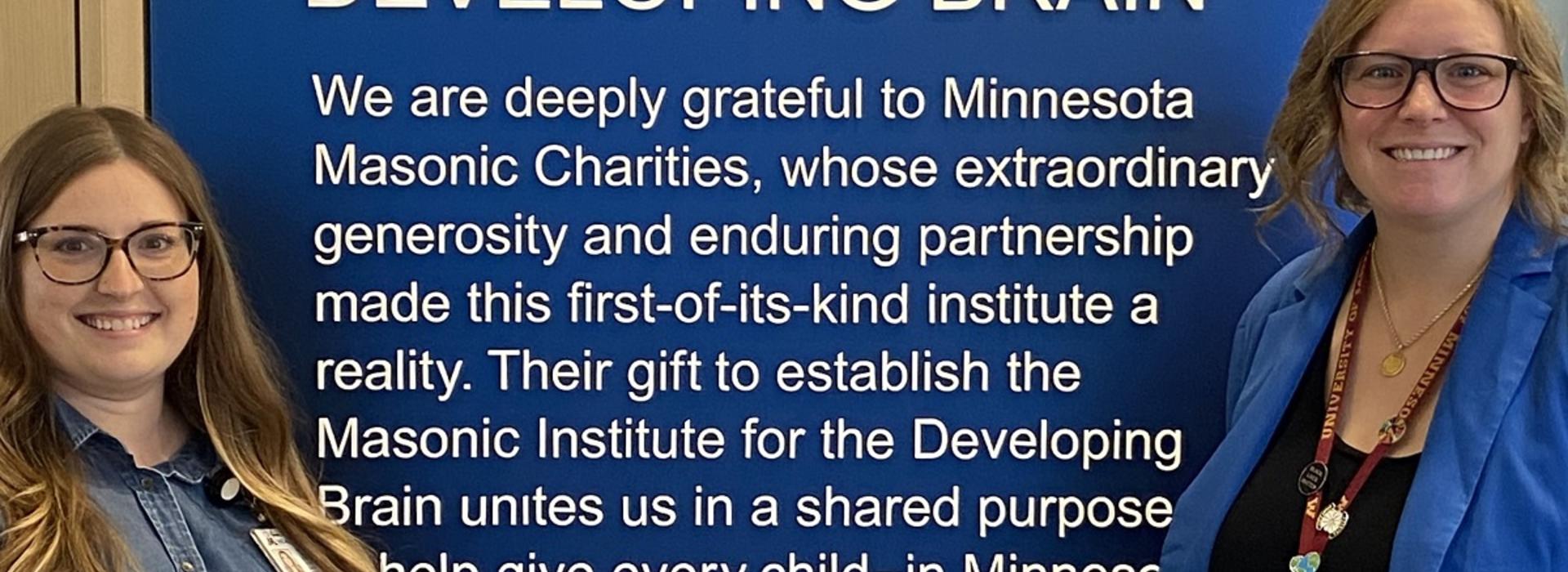
Mental health nurse practitioners use their roles to help their patients, collaborate with colleagues, and teach the next generation
Psychiatric Mental Health Nurse Practitioners (PMHNPs) provide a much-needed layer of care for mental health patients. According to the American Association of Nurse Practitioners, “the role of the PMHNP is to assess, diagnose, and treat the mental health needs of patients. Many PMHNPs provide therapy and prescribe medications for patients who have mental health disorders or substance abuse problems. PMHNPs may also provide physical and psychosocial assessments, emergency psychiatric care, and treatment effectiveness evaluations.”
During Nurse Practitioners Week, we’re highlighting two of our Psychiatric Mental Health Nurse Practitioners: Ellie Chase-Andresen, DNP, APRN, CNP, PMHNP-BC, PHN, and Elena Geiger-Simpson, DNP, APRN, CNP, PMHNP-BC, PHN. Both work with children and adolescents at the Masonic Institute for the Developing Brain (MIDB).
Took another path
Many nurse practitioners spend several years as an RN before pursuing a doctor of nursing practice (DNP) degree, but Ellie took a different path. “My original degree was in psychology. I wanted to go down the PhD path, treating patients and doing research,” she said. “But I was missing the medical side of things. When I started to pursue nursing, it was with the specific goal of becoming a nurse practitioner.”
Ellie was drawn to the nursing model of care because it takes the whole person into account and looks at how they fit in their worlds. “I also wanted a better understanding of the medications that are used in psychiatric care,” she said. “While I understood the value of therapy, the gold standard of care is combining therapy with medication, and I wanted to be able to do it all.”
Advocating for changes
Elena worked as an RN in community mental health for several years before becoming a nurse practitioner. “I would spend a lot of time getting to know my clients well,” she said. “But when I attended psychiatric appointments with them, they would have five to ten minutes with their providers and weren’t able to share everything that affected their health. I got to a point where I grew tired of advocating for changes with my patients and wanted to be able to make those changes directly in collaboration with them.”
There are many things to love about being a nurse practitioner. “I really enjoy working with kids…they keep me very humble,” said Ellie. “I am most drawn to helping kids in the foster care system. I like working with those families and providing the care coordination they need. There are a lot of systems involved and I need to know who everyone is and what they do.”
When kids are in the foster care system, there is often the need to de-prescribe instead of adding medications, Ellie noted. “Statistically, kids in these systems end up with a laundry list of medications because of their unstable environments,” she said. “They come in with intense needs and there is a lot of bouncing between different providers.”
A piece of the puzzle
One of the challenges Ellie faces every day is the workload. “I’m just one piece of the puzzle, which can be challenging,” she said. “There are a lot of things that go into providing mental health care for young people – having to navigate the systems involved can be challenging for everyone.”
Elena is a Clinical Assistant Professor in the U of M School of Nursing and in practice at MIDB one day a week. “I enjoy collaborating with my patients and their families,” she said. “I love learning their stories, pulling out their strengths, and seeing patients and families grow and get better.”
Passion for teaching
She is also passionate about teaching the next generation of psychiatric nurse practitioners. “I tell my students that I hope they go out in the world as reflective practitioners,” she said. “If they know themselves and their values, beliefs, and assumptions and can identify their own biases – it helps them understand how all those elements influence their interactions with patients, families, and colleagues and ultimately, helps them become a better practitioner.”
Like Ellie, Elena finds that there are a lot of things to do related to her role and not always enough time in which to do them. “It’s not about time management, it’s about expectations,” she said. “Documentation and administrative requirements don’t always get slotted into the workload appropriately, either in academia or patient care.”
Needed qualities
What are the qualities that a nurse practitioner needs to excel? “Because MIDB has such an interdisciplinary culture, we need to be open to disruptive innovation and change,” said Ellie. “I also feel strongly about being willing and able to take on learners.”
Agreeing with Ellie about the interprofessional nature of MIDB, Elena notes that being able to collaborate in that context is important – and fun. She also agreed that nurse practitioners in an academic setting should be prepared to teach.
Elena believes that good nurse practitioners need a strong knowledge of diagnosing and treatment plans, including psychopharmacology, and building the self-awareness she mentioned earlier. “We also need to be able to delegate,” she said. “Many nurse practitioners were RNs and we did everything. Moving into a provider role means that we need to delegate tasks we would have done ourselves before.”
Ardent supporters
Both Ellie and Elena are enthusiastic supporters of the nurse practitioner profession. Ellie’s advice for someone exploring the NP career path is to be prepared to peel back where possible. “The hardest lesson I learned was that I needed to work less,” she said. “We’re going to school to become competent and safe prescribers in a shorter time than the typical medical student. To be able to do that and feel like you learned enough, you must reduce commitments in other areas of your life.”
Elena notes the value of working as an RN for a while. “Having some experience in that role helps you understand your strengths and choose an NP specialty,” she said. She also advises potential candidates to choose a reputable NP program. Both Ellie and Elena completed their Doctor of Nursing Practice (DNP) degrees at the U of M. “We have one of the top programs in the country,” said Elena.
Ellie believes that many people may not fully understand the role of an NP. “It’s a newer field and a newer license,” she said. “There is a lot of misunderstanding about what we can do.”
NPs are not mid-level providers, added Elena. “We come from a nursing perspective and philosophy, which is a different way of providing care,” she said. “There are strengths in the way we practice and in the way physicians practice. We complement each other well.”
Learn more about the nurse practitioner profession.
#NPWeek
